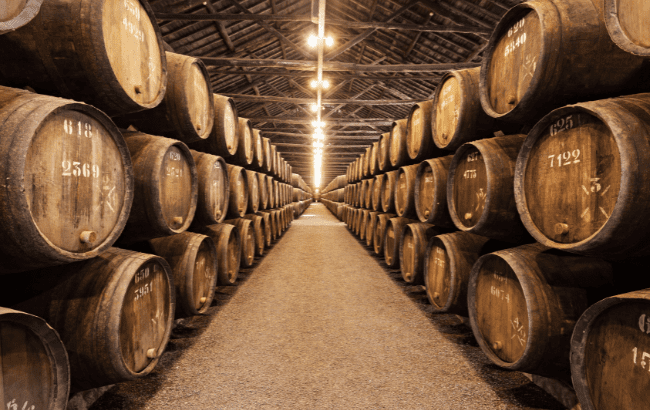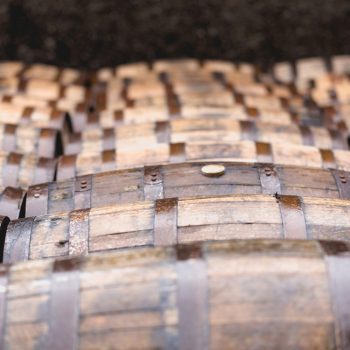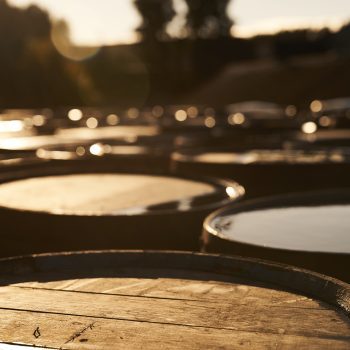Trade reaction: BBC shines light on whisky cask scams
By Georgie CollinsA BBC investigation into fraudulent practices within the whisky cask investment sector has generated fresh calls for stricter regulation, parliamentary intervention, and better transparency within the industry.

BBC investigations correspondent Samantha Poling went undercover for the broadcaster to investigate the ‘shadowy world’ of scam cask investment companies.
In an hour-long documentary titled Disclosure: Hunting the Whisky Bandits, which spanned eight months of investigation, Poling met a number of people who have been duped by criminals into handing over all of their savings after the promise of high and fast returns on their investments.
All victims spoken to by Poling said they were initially promised returns to the value of around 12%, with some projections forecast to increase to as much as 50% over time.
However, all victims featured in the documentary, both in the UK and the US, said after a period of reliable communication from the scammers, contact ceased, and they have never received a penny of their money back.
Some investors had subsequently taken it upon themselves to investigate their casks, discovering that as well as paying over the odds for their casks – in some cases by five times the market value – some of them didn’t exist at all.
Victims include terminal cancer patient Jay Evans, who has been told it will take 25 years to recoup the £76,000 (US$98,000) she has lost, and Alison Cocks, who invested £103,000 (US$133,000) in four casks of whisky, two of which do not exist.
Evans had made her investment with a company called Whisky Scotland, which has since gone dark and its directors have vanished, while Cocks had placed her money in a company called Cask Whisky Ltd.
Cask Whisky Ltd, Poling found, was set up in 2021 and, in its first year of trading, reported a ‘multi-million-pound turnover’.
The company was helmed by CEO Craig Arch. However, after Poling put a picture of Arch into some facial recognition software, it came to light that Arch was in fact a convicted fraudster called Craig Brooks, who had been jailed in 2019 for his part in a £6.2m investment scam. The 350 victims were mainly elderly.
Brooks had come out of prison, changed his appearance, changed his name to Arch, and set up Cask Whisky Ltd. Due to being disqualified from being a director on account of his criminal record, he put his fiancé – an eyebrow technician from Essex, England – down on the paperwork as the boss.
It is estimated that Cask Whisky Ltd left approximately 200 victims in its wake before it ‘disappeared’ following investigations by the City of London Police for alleged fraud. However, it wasn’t long before Poling found the company had resurfaced under the new name of Cask Spirits Global, which was being run by a man going by the name Craig Hutchins. After posing as a wealthy investor’s representative to meet Cask Spirits Global, Poling came face-to-face with Hutchins and was able to confirm the man to be the same convicted scammer at the helm of Cask Whisky Ltd, Craig Brooks.
The BBC has reported that The City of London Police’s Serious and Organised Crime Team is now investigating Brooks’ whisky company.
The trade reacts
While this is not the first time the world of whisky cask investment fraud has been reported on, this documentary, as well as its accompanying news articles and a six-episode podcast, does mark the first time that a national broadcaster has shone a light on the topic, giving a voice to the victims. As such, it has generated further conversation within the whisky trade, and amplified calls for stricter regulation and better transparency.

In an article for Forbes, writer Felipe Schrieberg, who has frequently highlighted the risks of whisky cask investments, noted: “The key values of transparency, honesty and integrity that have served as a foundation for the Scotch whisky industry’s 21st century boom are now under threat. Hopefully thanks to the BBC’s work, more people will come forward with their stories, as there are certainly many more victims out there.
“If enough are willing to talk about their unfortunate experiences, we’ll begin to see the end of the Scotch whisky cask ‘investment’ industry which has done so much damage already.”
Last year, Schrieberg was a guest on The Spirits Business Podcast, on which he discussed his website protectyourcask.com, which he launched with whisky broker and consultant Mark Littler a year ago to offer clear and transparent information regarding buying and owning casks of Scotch whisky. In the episode, Schrieberg noted there were some “interesting ideas, but no clear solutions” when it comes to solving the problem of whisky cask investment fraud. He suggested that “a clear response from the industry as a whole” was required, rather than “just a few people in the industry screaming”.
Some believe this documentary will be the catalyst for a wider uprising from the industry.
Blair Bowman, whisky consultant and broker, said in a post on LinkedIn: “As someone who has been accused of sounding like a broken record on this topic, it’s encouraging to see that BBC’s award-winning investigative journalists are now digging into the backgrounds of these charlatans running so-called ‘whisky cask investment companies’.”

In addition, Bowman shared a post by CaskNet, a cask management service that offers an independent authentication and verification service for whisky cask owners, which said: “The reality is clear: without parliamentary intervention to legislate the digital transfer and recognition of cask ownership, fraudsters will continue to exploit the system. Fake casks will be sold to unsuspecting buyers who haven’t been equipped with the tools – or the awareness – to conduct proper due diligence.”
CaskNet’s post also noted that despite widespread calls for regulation, “it’s not as straightforward as it seems”, explaining that the Scotch Whisky Association (SWA) “is well aware of the issue and concerned, but cask ownership and fraud prevention fall outside their remit”.
Furthermore, it explained that “The Financial Conduct Authority (FCA) does not regulate cask sales, as casks are not considered financial products. While some investment advisors are FCA-regulated, virtually no cask brokers are authorised to provide regulated investment advice.”
In a video posted on Instagram, whisky writer Kristiane Sherry explained that some of the fraudulent whisky cask investment companies are partnering with reputable brands, distilleries and writers to attract victims to “add legitimacy to what they’re doing”. Addressing the brands and companies working with the scammers, she pleads: “Please just stop. Do your own due diligence. You could be implicated in some serious fraud, too.”
Transparency and traceability

Rob Hollands, CEO of Proof 8, said: “The BBC’s investigation has cast a stark light on the fraudulent practices within cask ownership today. It underscores an important truth – the whisky industry urgently needs to address its issues around transparency.
“A new reality has already begun for warehouses and distilleries that have adopted digital solutions built firmly around transparency and traceability – we have many customers leading the charge here and the results they’re seeing have been described as ‘game changing’. However, a meaningful shift requires industry-wide cooperation and commitment to resolve ownership challenges once and for all. This is whisky’s moment.”
Hollands noted that the foundation of transparency lies with ‘Digital Deeds’, which are verified, tamper-proof digital records of ownership. These Digital Deeds, offered by Proof 8, mean that “every cask is assigned a unique blockchain-powered digital identity that stays with it for its entire lifetime. This provides a complete and auditable history of a cask’s provenance and authenticity, with an immutable record of ownership.
“Digital Deeds enable complete traceability for distilleries, warehouses, brokers and managing agents, and most importantly, build trust among owners and investors,” Hollands added. “Full visibility for everyone involved. As the whisky industry confronts the challenge of ownership, embracing digital deeds and digital solutions that enable transparency, will be pivotal.”
The documentary Disclosure: Hunting the Whisky Bandits can be viewed on BBC iPlayer.
Related news
Bunnahabhain debuts cask investment programme
